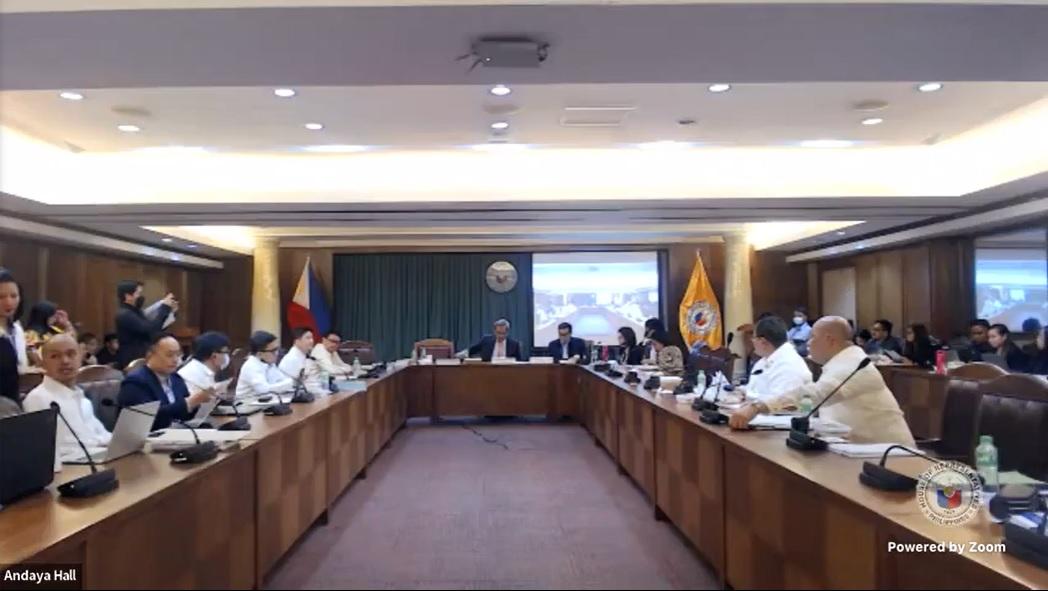House ad hoc panel approves bill mandating pension contribution for uniformed personnel

The Ad Hoc Committee in the House of Representatives on the military and uniformed personnel (MUP) pension on Tuesday approved an unnumbered substitute bill requiring MUPs, both those in active service and new entrants, to contribute to their pension.
House ways and means panel chairperson Joey Salceda, who served as the chairperson of the Ad Hoc Committee, said the approved substitute bill on MUP pension reform will require those in active service to contribute 5% of their base and longevity pay during the first to third year of the MUP pension reform implementation, 7% on the fourth to sixth year, and 9% for seventh year onwards.
The government contribution for pension of those in active service, on the other hand, will be at 16% during the first to third year, 14% on the fourth to sixth year and 12% for seventh year onwards.
New entrants, on the other hand, will contribute 9% of their their base and longevity pay for their pension with a government contribution of 12%.
“They should contribute [for their pension] just like the rest of those in public service. We made it staggered for those in active service because there are those with loans to pay, so we have to consider that,” Salceda said.
“Congress, economic managers and the MUPs have all agreed on this [reform],” he added.
The MUP pension reform covers the military, police, as well as the personnel of the Bureau of Corrections, Bureau of Jail Management and Penology, Philippine Coast Guard, Bureau of Fire Protection and the National Mapping and Resource Information Authority.
Aside from mandatory contribution among MUPs, Salceda said that the MUP pension reform bill provides a guaranteed 3% increase on the salary of MUPs, a mandatory retirement age of 57, indexation of their pension at 50% level of their rank and retainment of one rank higher rate for pension upon retirement.
“Garantisado ang increase, garantisado ang pondo [ng gobyerno]. Hindi na sila kailangang umasa [lang] sa GAA (General Appropriations Act). Pare-parehas na tayo lahat na magkakapensiyon tayo dahil nag-contribute tayo,” Salceda said.
(They will have a guaranteed salary increase, and we will have guaranteed funding for it. The pension fund for MUPs won’t be dependent on GAA alone anymore. We will all be in the same footing: we will have pension because we contributed part of our salary for it.)
The MUP pension reform bill also creates a trust fund for military MUPs and another for non-military MUPs, which will both be managed by the Government Service Insurance System (GSIS), the agency that currently manages pension funds of government workers.
“We all know that the GSIS is capable of managing such funds given that they have a lot of expertise in managing such a huge amount of money,” Salceda said.
In addition, Salceda said that the MUP pension reform bill will set aside funding for indigent retired MUPs.
“Seventy-two percent of the retired MUPs have moved on and went on to have other businesses, but what about the 28%? There is no universality in terms of the needs of the pensioners,” Salceda said.
“There are those who failed to move on...they can be victimized by scams, had failed marriages and got depressed. We have to make the pension system responsive to the needs of the pensioners,” he added. —KG, GMA Integrated News




